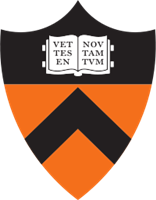What do they do?
Develop and implement websites, web applications, application databases, and interactive web interfaces. Evaluate code to ensure that it is properly structured, meets industry standards, and is compatible with browsers and devices. Optimize website performance, scalability, and server-side code and processes. May develop website infrastructure and integrate websites with other computer applications.
Also known as:
Technology Applications Engineer, Web Architect, Web Design Specialist, Web Designer, Web Developer, Webmaster
-
4.6%
Change
Ranks #N/A in job growth rate230Job Openings
Ranks #N/A in net job growth
-
Massachusetts Institute of Technology
Cambridge, MA
-
Stanford University
Stanford, CA
-
Columbia University in the City of New York
New York, NY
-
Princeton University
Princeton, NJ
-
Cornell University
Ithaca, NY
Looking for colleges that offer a specific major? Use the College Match Tool to find your best-matched schools and discover your estimated Net Price!
- Doctorate or Professional Degree (1%)
- Master's degree (14%)
- Bachelor's degree (56%)
- Associate's degree (8%)
- Some college, no degree (15%)
- High school diploma equivalent (4%)
- Less than high school diploma (1%)
Most Popular Majors that prepare Web Developers
-
#1
-
Degrees Granted
40,331
-
Female Students
8,540
-
Male Students
31,791
-
Median Starting Salary
$62,633
-
-
#2
-
Degrees Granted
1,997
-
Female Students
365
-
Male Students
1,632
-
Median Starting Salary
$50,500
-
-
#3
-
Degrees Granted
1,099
-
Female Students
663
-
Male Students
436
-
Median Starting Salary
$42,300
-
-
#4
-
Degrees Granted
162
-
Female Students
60
-
Male Students
102
-
Median Starting Salary
$50,800
-
People in this career often have these skills:
- Programming - Writing computer programs for various purposes.
- Critical Thinking - Using logic and reasoning to identify the strengths and weaknesses of alternative solutions, conclusions, or approaches to problems.
- Reading Comprehension - Understanding written sentences and paragraphs in work-related documents.
- Complex Problem Solving - Identifying complex problems and reviewing related information to develop and evaluate options and implement solutions.
- Operations Analysis - Analyzing needs and product requirements to create a design.
- Active Listening - Giving full attention to what other people are saying, taking time to understand the points being made, asking questions as appropriate, and not interrupting at inappropriate times.
- Active Learning - Understanding the implications of new information for both current and future problem-solving and decision-making.
- Judgment and Decision Making - Considering the relative costs and benefits of potential actions to choose the most appropriate one.
People in this career often know a lot about:
- Computers and Electronics - Knowledge of circuit boards, processors, chips, electronic equipment, and computer hardware and software, including applications and programming.
- English Language - Knowledge of the structure and content of the English language including the meaning and spelling of words, rules of composition, and grammar.
- Mathematics - Knowledge of arithmetic, algebra, geometry, calculus, statistics, and their applications.
People in this career often have talent in:
- Deductive Reasoning - The ability to apply general rules to specific problems to produce answers that make sense.
- Oral Comprehension - The ability to listen to and understand information and ideas presented through spoken words and sentences.
- Written Comprehension - The ability to read and understand information and ideas presented in writing.
- Problem Sensitivity - The ability to tell when something is wrong or is likely to go wrong. It does not involve solving the problem, only recognizing that there is a problem.
- Near Vision - The ability to see details at close range (within a few feet of the observer).
- Inductive Reasoning - The ability to combine pieces of information to form general rules or conclusions (includes finding a relationship among seemingly unrelated events).
- Information Ordering - The ability to arrange things or actions in a certain order or pattern according to a specific rule or set of rules (e.g., patterns of numbers, letters, words, pictures, mathematical operations).
- Speech Recognition - The ability to identify and understand the speech of another person.
- Speech Clarity - The ability to speak clearly so others can understand you.
People in this career often do these activities:
- Design websites or web applications.
- Write computer programming code.
- Update website content.
- Create electronic data backup to prevent loss of information.
- Test software performance.
- Create databases to store electronic data.
- Update knowledge about emerging industry or technology trends.
- Analyze project data to determine specifications or requirements.
- Monitor the security of digital information.
- Collaborate with others to resolve information technology issues.
- Provide customer service to clients or users.
- Provide technical support for computer network issues.
- Collaborate with others to develop or implement marketing strategies.
- Document design or development procedures.
- Configure computer networks.
- Recommend changes to improve computer or information systems.
- Document network-related activities or tasks.
- Develop specifications or procedures for website development or maintenance.
- Develop models of information or communications systems.
- Evaluate utility of software or hardware technologies.
- Provide recommendations to others about computer hardware.
- Install computer hardware.
- Conduct research to gain information about products or processes.
- Develop diagrams or flow charts of system operation.
This page includes data from:

 Occupation statistics: USDOL U.S. Bureau of Labor Statistics Occupational Employment Statistics
Occupation statistics: USDOL U.S. Bureau of Labor Statistics Occupational Employment Statistics









